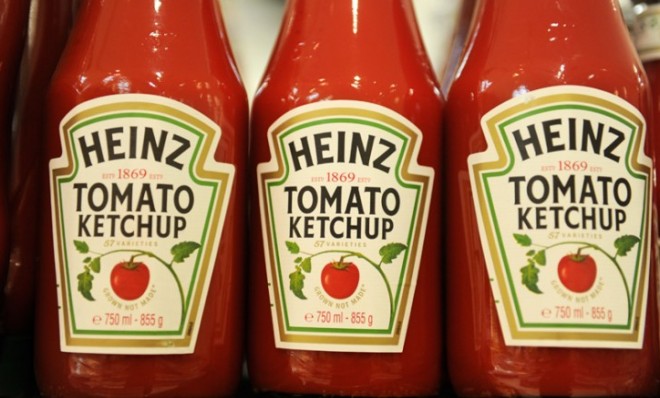Today in business: 5 things you need to know
Airbus ditches lithium-ion batteries, SEC looks into unusual Heinz trading spike, and more in our roundup of the business stories that are making news and driving opinion


A free daily email with the biggest news stories of the day – and the best features from TheWeek.com
You are now subscribed
Your newsletter sign-up was successful
1. AIRBUS ABANDONS LITHIUM-ION BATTERIES IN NEW PLANE
Airbus is ditching plans to use lithium-ion batteries in its A350 jet — the European aircraft manufacturer's new plane meant to rival the Boeing 787 Dreamliner. Boeing's plane has been grounded due to a string of technical glitches, including lithium battery failures that resulted in fires. Airbus says it's going to keep testing A350s with lithium-ion batteries on board so it can remain on schedule to launch the super-efficient jets in mid-2014, but it will make a change in the versions it sells. "With a view to ensuring the highest level of program certainty," the company says, "Airbus has decided to activate its Plan B and therefore to revert back to the proven and mastered nickel-cadmium main batteries." [BBC]
………………………………………………………………………………
The Week
Escape your echo chamber. Get the facts behind the news, plus analysis from multiple perspectives.

Sign up for The Week's Free Newsletters
From our morning news briefing to a weekly Good News Newsletter, get the best of The Week delivered directly to your inbox.
From our morning news briefing to a weekly Good News Newsletter, get the best of The Week delivered directly to your inbox.
2. SEC LOOKS INTO TRADING SPIKE ON EVE OF HEINZ TAKEOVER
Federal regulators have launched an investigation into an unusual spike in options trading in H.J. Heinz the day before Warren Buffett's Berkshire Hathaway announced that it was buying the maker of Heinz ketchup and other iconic products. Berkshire Hathaway and 3G Capital, a firm with Brazilian roots, offered $75.20 per share for Heinz — a 20 percent premium over the previous day's closing price — and the stock promptly shot up to match the offer price after the $23 billion deal was announced. The Securities and Exchange Commission wants to know why there was a spike in option bets that Heinz stock would rise on Wednesday, the day before the takeover announcement, even though hardly any such wagers were made a day earlier. [New York Times]
………………………………………………………………………………
3. U.S. FACTORIES COOL OFF
A free daily email with the biggest news stories of the day – and the best features from TheWeek.com
Manufacturing output unexpectedly inched down by 0.4 percent in January, after jumping by 1.1 percent in December, the Federal Reserve said on Friday. The cooling down came after back-to-back months with the biggest gains in three decades. Analysts say one reason for the drop was a decline in automobile assembly after a brief surge. "January showed a bit of a payback after the strength in manufacturing toward the end of 2012," said Sam Coffin, an economist at UBS Securities LLC in Stamford, Conn. Still, he said, "manufacturing will be growing pretty rapidly as companies have to restock inventories, and there's overseas as well as domestic demand. We're on a slightly better path now." [Bloomberg]
………………………………………………………………………………
4. HERBALIFE STOCK JUMPS AFTER ICAHN STAKE REVEALED
Herbalife shares shot up by 12 percent on Friday after documents revealed that billionaire corporate raider Carl Icahn had purchased a stake that made him the nutritional food and supplement maker's second biggest shareholder. A regulatory filing Thursday indicated that Icahn has bought up 14 million shares, or 13 percent of the company, for $214 million. A rival New York hedge fund manager, Bill Ackman, sent Herbalife shares plunging in December when he announced a $1-billion "short" — a bet that the stock will fall — and accused Herbalife of being pyramid scheme that defrauds the people who distribute its products. [Los Angeles Times]
………………………………………………………………………………
5. OBAMA BACKS ELIMINATING PENNY
President Obama said in an online "Fireside Chat" Thursday that the time has come to stop minting the penny. The one-cent piece costs 2.4 cents to mint and distribute, so the U.S. government loses money on every one put into circulation. The loss has risen from $19.8 million in 2009 to $60.2 million in 2011. Cutting out copper and zinc coins won't result in a "huge savings," Obama concedes, but "anytime we're spending more money on something that people don't actually use, that's an example of something we should probably change." The president doesn't expect quick action, though, as Americans are sentimentally attached to the coins and Congress has bigger priorities. [CNN]
Harold Maass is a contributing editor at The Week. He has been writing for The Week since the 2001 debut of the U.S. print edition and served as editor of TheWeek.com when it launched in 2008. Harold started his career as a newspaper reporter in South Florida and Haiti. He has previously worked for a variety of news outlets, including The Miami Herald, ABC News and Fox News, and for several years wrote a daily roundup of financial news for The Week and Yahoo Finance.
-
 The ‘ravenous’ demand for Cornish minerals
The ‘ravenous’ demand for Cornish mineralsUnder the Radar Growing need for critical minerals to power tech has intensified ‘appetite’ for lithium, which could be a ‘huge boon’ for local economy
-
 Why are election experts taking Trump’s midterm threats seriously?
Why are election experts taking Trump’s midterm threats seriously?IN THE SPOTLIGHT As the president muses about polling place deployments and a centralized electoral system aimed at one-party control, lawmakers are taking this administration at its word
-
 ‘Restaurateurs have become millionaires’
‘Restaurateurs have become millionaires’Instant Opinion Opinion, comment and editorials of the day
